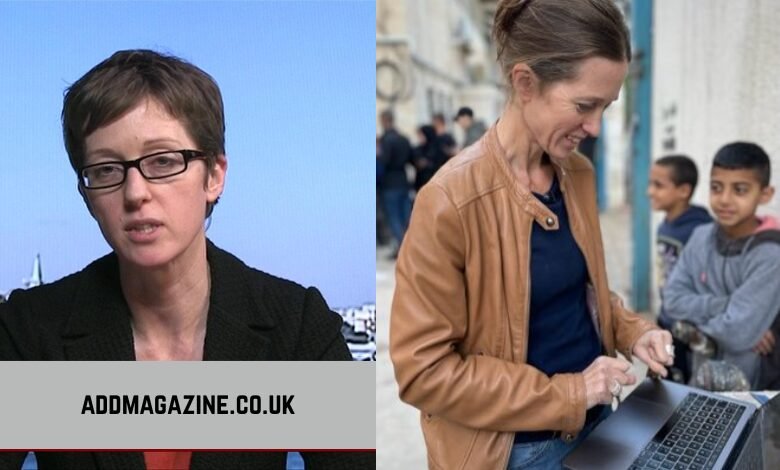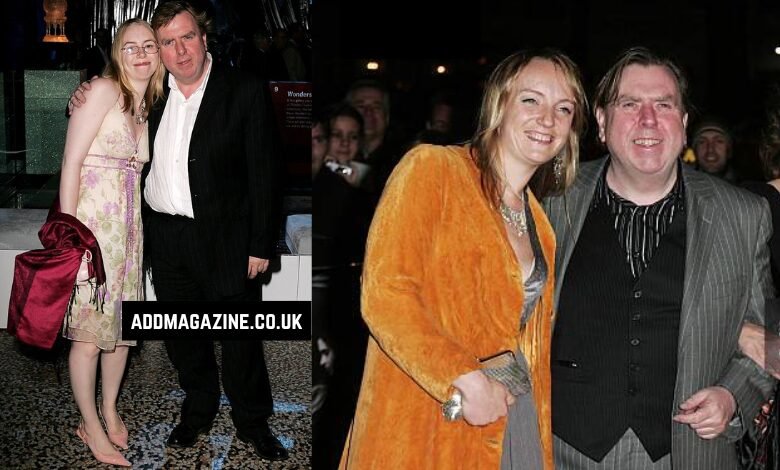Lucy Williamson is one of the most recognized figures in international journalism today, widely respected for her dedicated reporting and unwavering commitment to telling the truth. A journalist with over two decades of experience, she has built a reputation for her ability to tackle complex stories with both precision and humanity. Her work has spanned multiple continents, covering conflicts, political upheavals, and human-interest stories. Throughout her career, Williamson has been at the forefront of some of the most significant global events, particularly in volatile regions like the Middle East, where her work has earned her the trust of audiences and peers alike.
Early Life and Education
Born with a curiosity for language and culture, Lucy Williamson’s journey into journalism was shaped by her academic background. She studied English and Persian at the University of Manchester, where she graduated in 1997. This combination of languages provided a solid foundation for her later work in the Middle East and other regions where language and cultural nuance are critical to understanding the broader context of the stories she covers.
Williamson’s interest in Persian, in particular, would later be a defining element of her career. Her proficiency in the language, coupled with a strong understanding of the culture, enabled her to build a rapport with individuals across the regions she reported on. This academic grounding provided her with not just the tools to navigate complex political landscapes but also the cultural sensitivity necessary for meaningful reporting in areas with intricate histories.
Career Beginnings and Rise at the BBC
Lucy Williamson’s professional journey began in 2002 when she joined the BBC News team. Her first major assignments took her to some of the most challenging and complex regions in the world. In her early years, Williamson reported from the Middle East, covering major stories such as the Israeli-Palestinian conflict, Israel’s withdrawal from Gaza, and the 2006 Lebanon War. These reports would become foundational to her career and would ultimately shape her reputation as a journalist capable of handling high-pressure situations while delivering accurate, insightful, and human-centered reports.
Her ability to report from conflict zones with an unflinching commitment to accuracy and empathy became her hallmark. One example of this was when she covered the aftermath of an attack on Palestinian olive groves by Israeli settlers near Nablus in the West Bank. As she was reporting on the destruction, Williamson witnessed masked settlers launch an unprovoked attack, which she described as escalating quickly. Her firsthand account of this incident demonstrated her ability to provide audiences with crucial information in real-time while maintaining an impartial perspective. She didn’t just report on the event itself but provided the larger context of settler violence in the region, offering viewers a deeper understanding of the dynamics at play.
Her calm under pressure and commitment to delivering news that was both factual and emotionally resonant earned her widespread praise. In the field, where access to accurate information is often difficult, Williamson’s work became essential in providing clarity to her audiences. Her reports have often given a voice to those most affected by conflicts, such as civilians living under occupation or those suffering the impact of war.
A Focus on Human Stories Amid Global Crises
Lucy Williamson’s work is known for its human-centered approach, particularly when reporting from regions in conflict. Her ability to make sense of political and military events by focusing on the human toll they take is one of her defining strengths. She does not just cover the headlines; she digs deeper to uncover the stories of individuals caught in difficult circumstances, making her reports resonate on a personal level with audiences.
For instance, her reporting from Gaza and Syria has highlighted the experiences of ordinary people living in extraordinarily difficult situations. Her interviews often focus on the emotional and psychological effects of war, rather than just the tactical movements of armies or the political maneuvering of governments. Williamson’s reporting from Gaza during the 2014 Israel-Gaza conflict provided vivid accounts of civilian casualties and the destruction of homes, offering a sobering look at the daily reality of life under siege. By focusing on personal narratives, she brought the wider conflict to life, enabling viewers to connect with the human side of the story.
Additionally, her work in Lebanon and Israel has examined the broader socio-political implications of these conflicts. Williamson has been able to distill the complexities of the Israeli-Palestinian conflict, often presenting it in a manner that makes it accessible to viewers with little prior knowledge. This ability to simplify complex issues is one of her great strengths, and it has made her a trusted voice in global journalism.
A Versatile Journalist
While Williamson is best known for her reporting in conflict zones, her career has spanned a wide variety of assignments that have taken her to many different parts of the world. In 2014, she was appointed as the BBC’s Paris correspondent, where her focus expanded to include the political and cultural developments within Europe. During this time, she covered a wide range of stories, from the rise of populist movements in Europe to the ongoing refugee crisis. Her insights into European politics have been just as valuable as her coverage of the Middle East.
Williamson’s versatility as a journalist is reflected in the variety of stories she has covered over the years. She has reported on cultural events, economic developments, and environmental issues, and has provided in-depth analysis of global trends. Her reporting on the refugee crisis in Europe, for example, has shown her ability to adapt to shifting global priorities while maintaining the same level of precision and empathy that defines her coverage of conflict zones.
One of her more high-profile assignments came in 2023, when she conducted a tense and highly scrutinized interview with Andrew Tate, the controversial internet personality. The interview was widely discussed for its confrontational yet respectful tone, with Williamson demonstrating her capacity to handle difficult subjects with professionalism and integrity. Whether dealing with sensitive political topics or controversial figures, Williamson’s questioning style has been marked by fairness and an unwavering commitment to the facts.
Professionalism and Integrity in Journalism
One of the reasons Lucy Williamson is so highly regarded within the journalism community is her unwavering professionalism. In a field that is often scrutinized for bias and sensationalism, Williamson stands out for her ability to maintain journalistic integrity in even the most challenging of situations. Her dedication to reporting the truth, regardless of the political, social, or personal risks, has earned her the respect of both her peers and the public.
Williamson’s approach to journalism is rooted in her belief that the role of a journalist is to serve as a bridge between events on the ground and the people who rely on news organizations for information. She has often emphasized the importance of providing context and understanding, and this has led her to spend considerable time on the ground in the regions she covers. By cultivating sources and relationships within the communities she reports on, Williamson is able to provide a more nuanced and accurate portrayal of events.
Her ability to handle difficult and complex stories without resorting to sensationalism is a hallmark of her reporting style. She is known for her calm and composed demeanor, even when covering events of great tension. In a world where the media landscape is increasingly polarized, Williamson remains a steady and impartial voice that the public can rely on for accurate information.
The Personal Side of Lucy Williamson
Although Lucy Williamson has spent much of her career in the public eye, she has largely kept her personal life private. Her work as a journalist has always taken center stage, and she has built her career on her professional achievements rather than public recognition. However, her dedication to her craft is clear, and it’s evident that journalism is not just a job for Williamson—it’s a passion that has shaped her identity over the years.
She is estimated to be in her mid-40s as of 2025, with over two decades of experience in the field. Despite the demanding nature of her job, Williamson has managed to maintain a balance between her professional commitments and personal life, although little is known about her private affairs. As a senior journalist at the BBC, her work continues to inspire the next generation of journalists who look up to her for her integrity and skill.
The Impact of Lucy Williamson’s Work
Lucy Williamson’s career has had a significant impact on the way international journalism is practiced. She has helped to set a standard for reporting from conflict zones and has shown that it is possible to report from such regions with both accuracy and compassion. Her ability to break down complex political and social issues into understandable narratives has made her an invaluable asset to the BBC and the wider media community.
Through her work, Williamson has demonstrated the power of journalism to inform, educate, and inspire change. Whether reporting on the plight of refugees, the impact of conflict on civilians, or the complexities of international politics, Williamson’s stories resonate with audiences worldwide. Her legacy is one of professionalism, integrity, and a commitment to the truth, all of which continue to define her career today.
In an era where the media is often criticized for being divided or misleading, Lucy Williamson’s career stands as a testament to the importance of unbiased, fact-based journalism. As she continues her work with the BBC, her contributions to global journalism will no doubt remain influential for years to come.
Conclusion
Lucy Williamson has firmly established herself as one of the leading voices in international journalism. Through her consistent dedication to providing in-depth, unbiased reporting, particularly from conflict zones and politically volatile regions, she has earned a reputation for professionalism and integrity. Williamson’s ability to blend complex geopolitical issues with human-centered storytelling has made her a respected figure in global media.
Her career, marked by significant contributions to the BBC, serves as an example of what responsible journalism can achieve. By continuing to report from the front lines and offering insightful perspectives on global affairs, Lucy Williamson remains a vital presence in the ever-evolving landscape of international news.
FAQs
- What is Lucy Williamson known for?
Lucy Williamson is known for her in-depth reporting from conflict zones, particularly in the Middle East, and her insightful analysis of global events. - Where has Lucy Williamson reported from?
Williamson has reported from many conflict zones, including Gaza, Syria, Lebanon, Israel, and the West Bank, covering wars and political upheavals. - When did Lucy Williamson join the BBC?
Lucy Williamson joined the BBC News team in 2002, marking the beginning of her influential career in international journalism. - What makes Lucy Williamson’s reporting unique?
Her ability to simplify complex political issues while focusing on the human impact of global conflicts sets her apart from other journalists. - Has Lucy Williamson interviewed controversial figures?
Yes, she interviewed Andrew Tate in 2023, handling the conversation with professionalism and maintaining journalistic integrity.



